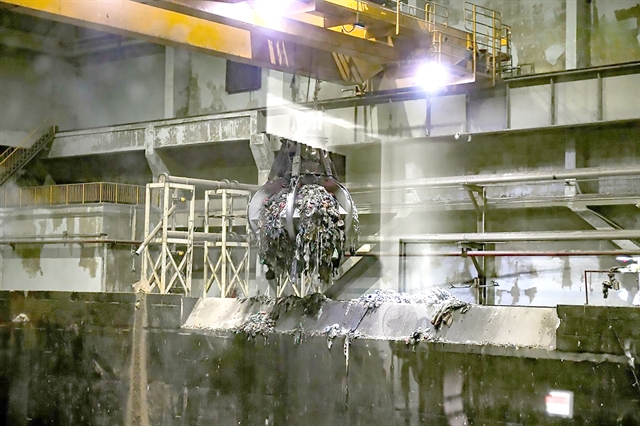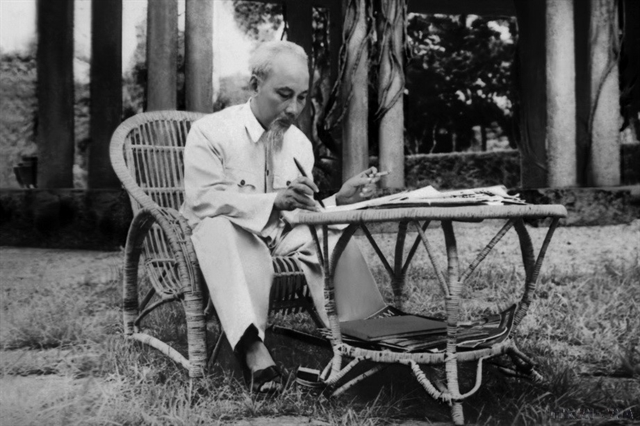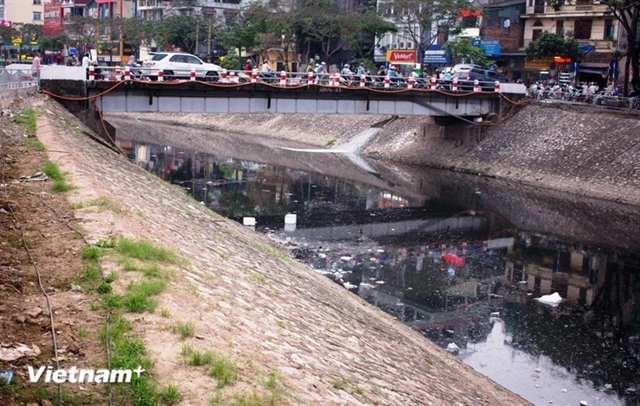 Environment
Environment

 |
| A section of the Tô Lịch River flowing through Hà Nội's Cầu Giấy District. — Photo vietnamplus.vn |
HÀ NỘI — The Ministry of Natural Resources and Environment (MoNRE) has urged Prime Minister Phạm Minh Chính to establish five river basin committees to unify the efforts to improve water quality.
This initiative comes amid growing concerns over water quality in numerous river basins, with some rivers suffering severe pollution, posing risks to residents' health and daily lives.
The proposed measures include the comprehensive collection and treatment of domestic wastewater and ensuring clean water flow.
Châu Trần Vĩnh, director of the ministry's Water Resources Management Department, said that despite ongoing efforts by ministries and local authorities to restore polluted rivers, progress has been fragmented and lacks a unified strategy.
MoNRE has highlighted the continued industrial discharge into rivers, compounded by insufficient State resources for wastewater collection and treatment.
Currently, only 17 per cent of domestic wastewater is collected and treated nationwide.
Alarmingly, just 30.3 per cent of industrial zones and 16.1 per cent of craft villages have centralised wastewater treatment systems.
Rivers such as the Nhuệ-Đáy, Cầu, Tô Lịch and the Bắc Hưng Hải irrigation system are heavily polluted due to excessive waste inflows.
The Nhuệ-Đáy basin alone receives 65 per cent of its waste from Hà Nội, with approximately 1,980 discharge sources, including 1,660 from production facilities and 40 from industrial zones.
The ministry has enhanced environmental monitoring in the Nhuệ-Đáy basin with five automatic and 42 periodic monitoring stations and has established continuous online data connections for major discharge points.
MoNRE recently inaugurated a new centre for integrating and processing environmental data and managing the national monitoring network. It has committed to assessing river capacities and working with localities on suitable solutions.
However, the ministry stressed that restoring severely polluted rivers requires comprehensive involvement from all relevant ministries and local authorities to effectively manage waste and ensure clean water flow.
Vĩnh said the Water Resources Management Department outlined a plan that includes immediate local efforts to improve the collection and treatment of domestic and agricultural wastewater, as well as establishing mechanisms to attract resources for sustainable river management.
A pilot project for river restoration, expected to be submitted to the prime minister in 2025, will consider two approaches, starting with the polluted Bắc Hưng Hải system and expanding to other rivers in Hà Nội, or implementing a nationwide programme to address degraded and polluted water sources.
Another solution for restoring 'dead' rivers is to manage them by river basin rather than by administrative boundaries.
The Ministry of Natural Resources and Environment has proposed five river basin committees for the Red-Thái Bình, North Central, South Central, Southeast and Mekong rivers.
These committees will manage major basins and their tributaries, such as the Nhuệ and Đáy rivers, with representatives from government, ministries, and local authorities for coordinated oversight. — VNS




